Fair Trade

Composed of natural and dyed kaisa grass collected from the riverside and wrapped in brightly dyed palm leaf fibers, this organic bowl is a beautiful home accent.
Dhaka Handicrafts is a non-profit, artisan-owned organization which assists artisans in Bangladesh to become self-sufficient and at the same time encourages and markets traditional craftsmanship. With a motto of ‘producers first,’ Dhaka offers benefits to artisans including interest-free advances on orders for the purchase of raw materials, continuous skill development training, a retirement savings plan, health care facilities, training, and equal pay and benefits for women.
- Dimensions: 6.75” x 20”
- Price: Regularly $22
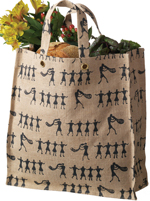
Natural jute bag is printed with folk art images of dancers and musicians, and lined with a water-resistant laminate.
Prokritee was established to develop the social and economic capacity of rural, disadvantaged women in Bangladesh. Prokritee’s income-generating projects provide needed opportunities for women who are widows, single mothers, or heads-of-household with little or no income. Prokritee, which means ‘nature” in Bangla, places strong emphasis on working with sustainable, natural materials. Formed by the Mennonite Central Committee in 2001, the organization has become an independent non-profit.
- Handles attached with grommets for added durability
- Dimensions: 15” x 5.5”
- Handles: 14”
- Price: $15 on sale (regularly $24)
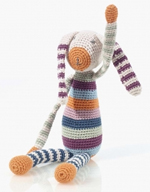
This floppy-eared, multi-striped bunny is fun, friendly and fully machine-washable.
Hathay Bunano (meaning handmade) is a non-profit fair trade organization in Bangladesh. Its mission is to create fairly paid, good quality, flexible and local employment for rural women who are poor and often disadvantaged. Hathay Bunano aims to provide employment which fits in with the rhythm of rural life and to prevent economic migration to the cities. It aims to keep families together and in particular to keep mothers with their babies and children by providing employment in a village setting close to their homes. It aims to address all the reasons why a woman might not be able to work and to support her so that she can work and can earn money to support her family.
- Hand-knitted in 100% cotton yarn. $23.25
- Price: $23.25
Books
Fiction
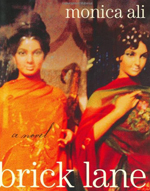
Brick Lane (also a film)
By Monica Ali (Scribner, 2004)
After an arranged marriage to Chanu, a man twenty years older, Nazneen is taken to London, leaving her home and heart in the Bangladeshi village where she was born. Her new world is full of mysteries. How can she cross the road without being hit by a car (an operation akin to dodging raindrops in the monsoon)? What is the secret of her bullying neighbor Mrs. Islam? What is a Hell’s Angel? And how must she comfort the naïve and disillusioned Chanu? As a good Muslim girl, Nazneen struggles to not question why things happen. She submits, as she must, to Fate and devotes herself to her husband and daughters. Yet to her amazement, she begins an affair with a handsome young radical, and her erotic awakening throws her old certainties into chaos.
“In an extremist male society, Nazneen must grasp at flecks of freedom, and Ali is extraordinary at capturing the female immigrant experience through her character’s innocent perspective.” – Booklist
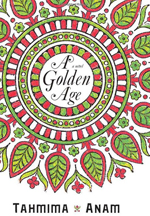
By Tahmima Anam (Harper Perennial, 2009)
Rehana Haque, a young widow, blissfully prepares for the party she will host for her son and daughter. But this is 1971 in East Pakistan, and change is in the air. Set against the backdrop of the Bangladesh War of Independence, A Golden Age is a story of passion and revolution; of hope, faith, and unexpected heroism in the midst of chaos—and of one woman’s heartbreaking struggle to keep her family safe.
“An illumination on how far a woman will go to protect her children’s bodies and souls . . . Anam reminds us most forcefully that a mother’s love for her child is the most powerful and frightening weapon there is.” – Minneapolis Star Tribune
Non-Fiction
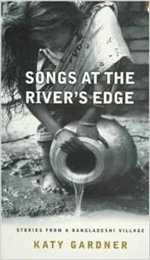
Songs at the River’s Edge: Stories from a Bangladeshi Village
By Katy Gardner (Pluto Press, 1997)
Katy Gardner’s account of her fifteen-month stay in the small Bangladeshi village of Talukpur has become a classic study of rural life in South Asia. Through a series of beautifully crafted narratives, the villagers and their stories are brought vividly to life and the author’s role as an outsider sensitively conveyed in her descriptions of the warm friendships she makes. Above all Songs at the River’s Edge is written from a deep respect of Bangladesh and its country.
“The author is a young English anthropologist who lived in a rural Bangladesh village for a year as part of her graduate work. The stories are those of the people among whom she lived, and they are fascinating. She achieves that delicate balance that is so difficult for Westerners writing about other cultures – an awareness of her own Western lens that affects her interpretation of the lives she finds there, through which she shows us the details of those lives that increase our awareness. This is a compelling read.” – goodreads.com
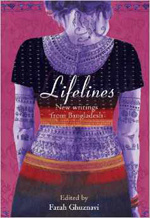
Lifelines: New Writing from Bangladesh
Edited by Farah Ghuznavi (Zubaan Books, 2013)
The first collection of its kind, Lifelines presents new work by young female writers from Bangladesh. Their stories portray multifaceted characters trying to take control of their own destinies, challenging stereotypes that cast the complex country as nothing more than poor and underdeveloped. In these tales, a successful architect suddenly becomes the reluctant guardian of two children; a New York cabbie ponders his previous incarnation as an investment banker; a mother-in-law and daughter-in-law maintain an uneasy truce based on delusion; a student encounters a mystery from his past in a foreign land; a young woman discovers an unlikely cure for self-consciousness; clear-eyed children observe adult hypocrisies; and romance makes its way into in all the wrong places.
“A great read, and indeed a great re-read as my well-thumbed copy attests. The stories speak of universal themes but Bangladesh lies at their heart. Anthologies such as these are so important, bringing many new writers to new international audiences.” – goodreads.com
Films
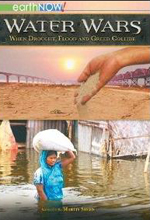
Water Wars (2009, 56 minutes)
The nation of Bangladesh is prey to every threat from water known to man. Martin Sheen narrates this documentary from writer-director Jim Burroughs that dissects the ongoing “water wars” in Bangladesh, a down-river nation that’s alternately plagued by drought, flooding and a growing sense of desperation.
Bangladesh is at war not only with rising seas, but with devastating floods and droughts – from India’s dams dumping their excess in the wet season and siphoning off river water in the dry season. As the country sees less and less river water during the dry season, it is forced to dig deeper for more wells, encountering arsenic poisoning that is filling hospitals and graveyards.
“Jim Burroughs spent two years in Bangladesh examining that country’s water issues and the increasingly political responses. Water Wars … was the result of that study.” – Mark Leeper
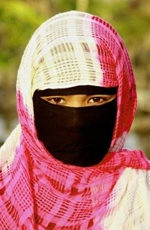
Between The Tides (2010 – 58 minutes)
An eye opening documentary on the politics of water in South Asia and perhaps a foretaste of things to come around the world. Bangladesh is one of the poorest countries on Earth and situated almost entirely on a flood plain. It has the peculiar situation of being either flooded or parched between Monsoon and dry season.
What would you do if rising seas salinated your crops, submerged your home and threatened to displace hundreds of millions of your people? The inhabitants of Bangladesh and India are currently fighting this battle on the front lines of climate change.
The first casualty of this war – an entire inhabited island washed away. Thousands of people have been forced to migrate to overpopulated urban centers like Calcutta and Dhaka. When cyclone Sidr hit in November of 2007, it reminded Bengali villagers that a new breed of powerful storm is becoming the norm, not the exception.
“Between the Tides” is a fifty-minute award-winning film that puts a human face on the true consequences of climate change. It translates this story from a language of theory to one of tangible and tragic reality.
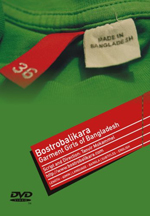
Bostrobalikara: Garment Girls of Bangladesh (2007, 60 minutes)
The chances are high that the jeans and t-shirts in your closet were made in Bangladesh. Ten million livelihoods currently depend on the global apparel market. But there is a dark side, as well, with this important industry being known for a certain level of ruthlessness towards labor.
“This captivating documentary focuses on the garment girls of Bangladesh s notorious sweatshops. The camera tracks the lives of these girls, the hardships they have to endure, the meagre salaries they earn and the indifference of those who employ them. Filmmaker Tanvir Mokammel follows these girls from the factories and sweatshops into their personal lives, which makes for an entrancing film.” – Nepali Times
We were unable to locate a source from which to purchase this film.
Music
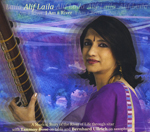
HOPE Foundation has recommended we share Alif Laila’s music with our readers. A famous sitar player from Bangladesh, Laila has performed in concert to benefit HOPE Foundation.
Alif Laila entered the study of Indian Classical Music at a very young age, and spent eight years training in great depth on a one-to-one basis, essential for the mostly unwritten classical music passed down through generations.
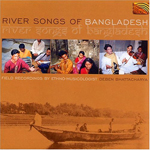
Bangladesh is a storehouse of folk songs. The words of the songs describe the simple lifestyle of the people at the River Brahmaputra. The instruments used for accompaniment are based on easily available materials, like the four-stringed lute carved out of jack-fruit wood or the wide variety of traverse and end-blown bamboo flutes (banshis). Small cymbals, wooden clappers and barrel drums are used to provide the rhythm.
“As a longtime half-the-year resident of Bangladesh, I’m delighted to report that these field recordings of 10 Bangla folksongs, sung with great style by nonprofessionals, offer a hint of the many musical treasures the country has to offer.” – Deben Ghattacharya, an ethno-musicologist
Listen to selections at ClassicsOnline.com
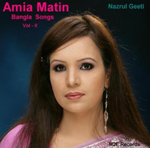
Born into a family of music lovers in Bangladesh, Amia took a keen interest in singing since early childhood. She attended the Nazrul Parishad Music School in Dhaka and completed courses in classical songs and Nazrul Songs – songs written and composed by Kazi Nazrul Islam, the national poet of Bangladesh and active revolutionary during the Indian Independence Movement. Nazrul Songs incorporate revolutionary notions as well as more spiritual, philosophical and romantic themes.
Compiled by Lynn O’Connoll and Marcie Christensen
Dining for Women is a participant in the Amazon Services LLC Associates Program, an affiliate advertising program designed to provide a means for sites to earn advertising fees by advertising and linking to amazon.com.
